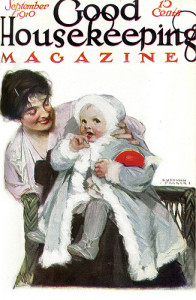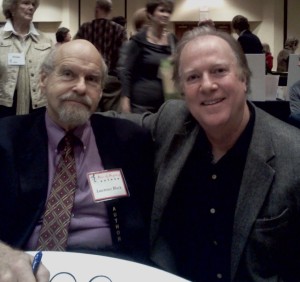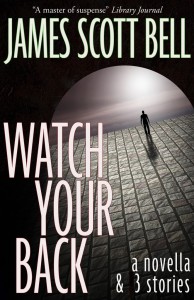By Joe Moore
We’ve had plenty of posts here at TKZ about story beginnings. As a matter of fact, we invite submissions and devote the month of March to critiquing the first page of your stories. Beginnings are so important because they set the hook and grab the reader.
But what about endings? Are they as important as beginnings? After all, they occur after the big finale, the gripping climax, the roaring finish. In a way, we can think of endings as anticlimactic. And yet, they have an important function to perform in any story.
First, the ending should resolve anything that was not addressed during the climax. Once the conflict between the protagonist and antagonist is put to bed, what’s left must be brought together as a resolution in the ending. There must be closure to anything still hanging in the reader’s mind.
The ending also answers the story question. Since the story question usually deals with character growth or change, the ending must make sure the story question is answered.
Let’s say that the main character had to stand by and watch his family perish in a terrible accident that he inadvertently caused. The story question might be: will he ever forgive himself and have the courage to find love again and perhaps start a new family? The actual plot might deal with something totally different, but along the way he finds a new love interest. Once the climax occurs and the plot is resolved, the reader must discover the answer to the story question. It has to be made clear in the ending. In most stories, the main character takes a journey, whether it’s physical, mental or spiritual. How he completes the journey is the answer to the story question and must be resolved in the ending.
Another function of the ending is to bring some sense of normalcy back to the characters’ lives. It can be the restoring of how things were before the journey began or it can be the establishment of a new normal. Either way, it must be resolved in the ending. Our hero has found a new love and plans to start a new family. It’s his new normal and the reader must understand the changes that he went through to establish the new normal.
If the story contains a theme, message or moral, the ending is where it should be reinforced. Not every story has an underlying theme, but if it does, it must be clarified in the ending. This way the reader can close the book with the feeling that the theme or message was accomplished or confirmed. The main character(s) got it, and so did the reader. Even if the reader doesn’t agree with the message, it has to be confirmed in his or her mind what it was, and if it was completed.
The end resolution of the theme or message must be in sync with the story. For instance, if the theme is to accept a spiritual belief in the existence of a greater power in the universe, the plot and characters must touch upon or address the idea somewhere along the way so the end resolution confirms that they have changed their beliefs to support or at least admit to the theme.
The ending should also cause readers to feel the way the writer intended them to feel. Whatever the emotional response the reader should experience, the ending is where it’s confirmed. After all, the writer is the captain of the ship. He steers the story in a specific direction—a direction he wants the reader to go. The reader is a passenger along for the journey. It’s important that in the end, the ship dock at the right port. Worse case is that it doesn’t dock at all. That’s the result of a weak ending.
The ending is how you leave your reader. It’s the last impression. And it just might be the reason the reader wants to buy your next book. Or not.
Have you been disappointed with an ending to a book or a movie? Did you invest the time only to come away feeling betrayed? And what book or movie do you feel contained all the elements of a great ending and left you wanting more?








